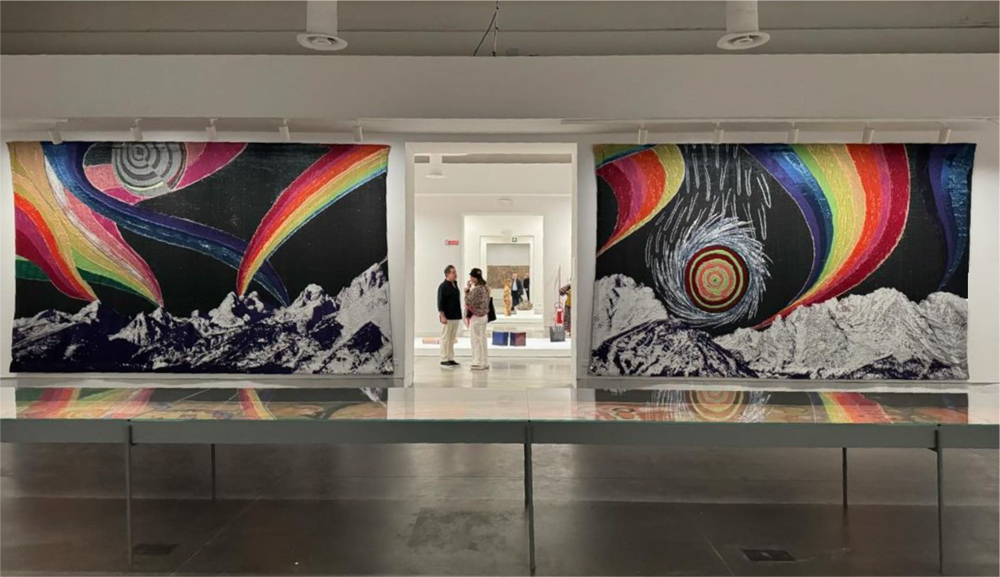Queer|Art at The Venice Biennale 2024
Excerpt from the Queer|Art newsletter
The 60th edition of the Biennale opens April 20th, 2024 and is on view through November 24th, 2024. This year’s iteration of the prestigious international art exhibition is themed “Stranieri Ovunque,” or “Foreigners Everywhere.” Curator Adriano Pedrosa says of the theme, “artists have always traveled and moved about through cities, countries and continents. The Biennale Arte 2024’s primary focus is thus artists who are themselves foreigners, immigrants, expatriates, diasporic, émigrés, exiled, or refugees.” This Biennale attempts to feature marginalized, excluded, and oppressed beauty that would otherwise be erased by mainstream matrices of artistic production.

Liz Collins, installation view of “Rainbow Mountains: Moon” and “Rainbow Mountains: Weather,” 2024 in the Central Pavilion at the 60th International Art Exhibition – La Biennale di Venezia, 2024. Photo by Liz Collins.
Queer|Art is also proud to uplift other esteemed community members and their participation in this year’s Biennale! Multi-Year QAM Mentor Liz Collins presents immersive and dazzling tapestries as part of the Central Pavilion. Her works, vibrant in color and exquisitely lush in texture, conjure what Collins describes as the “fantasy of a queer utopia that is just out of reach.” Her pieces are curated alongside other works that spotlight an interest in craft, tradition, and the handmade, and in techniques previously considered other or foreign, outsider or strange in the larger field of fine arts.
Also on view at the Biennale, Marco Scotini’s traveling project Disobedience Archive features several members of the QA family. Since 2005, Scotini’s Disobedience Archive has organized exhibitions around the world focused on artistic practices and activism. At their Biennale presentation, you can see Multi-Year QAM Mentor, Carlos Motta’s video work, Corpo Fechado: The Devil’s Work (2018), which interprets the true story of Francisco José Pereira, an 18th century man kidnapped from West Africa and sold into slavery in Brazil. As a means of survival, Pereira developed syncretic spiritual practices that mixed African with Christian tradition. Corpo Fechado imagines Pereira as the agent of his own narrative, reclaiming the terms of representation from the account of his own destruction.
Also included is a video work by 2012 QAM Mentor Barbara Hammer entitled, The History of the World According to a Lesbian (1988), which highlights diverse stories of lesbians and queer women throughout time, giving voice to a non-linear perspective of global history.

Still from “The History Of The World According To A Lesbian,” 1988 by Barbara Hammer. Courtesy the artist’s estate.